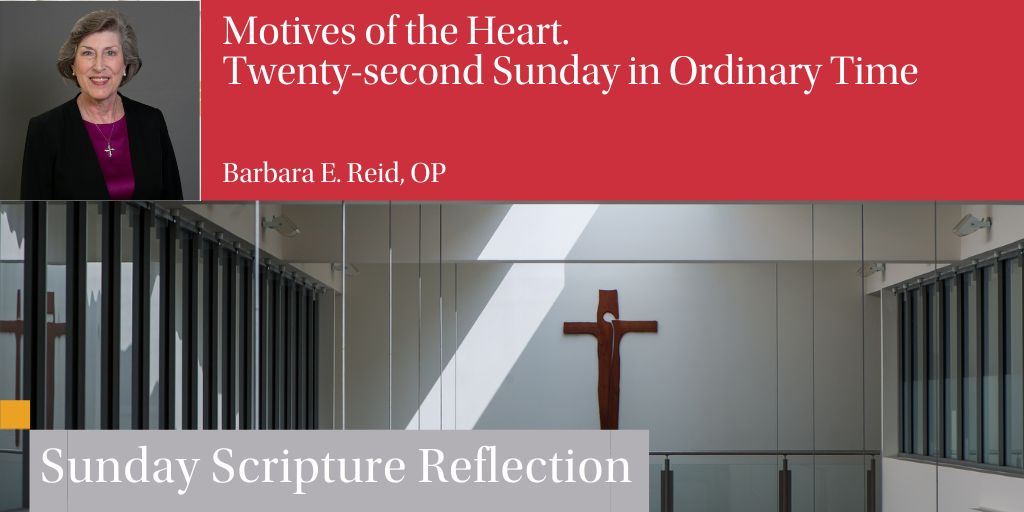
Readings:
Dt 4:1-2, 6-8
Ps 15:2-3, 3-4, 4-5
Jas 1:17-18, 21b-22, 27
Mk 7:1-8, 14-15, 21-23
“Religion that is pure . . . is to care for orphans and widows in their affliction” (Jas 1:27)
In today’s gospel the Pharisees and scribes challenge Jesus, asking why his disciples don’t follow the practices that have been handed on regarding ritual washing. The roots of these practices are found in Exodus 30:19; 40:12. They concern the custom of priests to wash their hands and feet before entering into the tent of meeting. By the second century BCE some Jews who were not priests had voluntarily assumed the practice of ritual washing of hands before Morning Prayer and before eating. In the gospel reading the washing extends also to the utensils for preparing the meal and to the purification of the dining couch. The Pharisees seem to presume these should be universal practices. But such observances would have been nearly impossible for peasant farmers, fishermen, and itinerants such as Jesus, given the scarcity of water and contact with dead fish and other pollutants.
This “tradition of the elders” (v. 3) would have been largely defined and maintained by urban elites.
In response to the Pharisees, Jesus quotes the prophet Isaiah, exposing the disconnection between lip service and motivations of the heart. It is not only that Jesus’s opponents have forgotten the true motivation for their religious practices; they have substituted humanly contrived practices for God’s commandments. Jesus points toward examination of our inner motives.
Our practices must flow from and reflect our profound experience of God’s love and care.
It can happen, however, that originally good practices deteriorate over time into meaningless customs or, worse yet, into showy external observance. It is good to periodically examine our religious practices, assessing how well they embody God’s love and how they impel us toward greater love of one another.
It is important to recognize the ways in which the heart can stray, as the ending of today’s gospel emphasizes. The enumeration of vices is a typical teaching device used by Hellenistic philosophers (see also Rom 1:29-31; Gal 5:9-21). Jesus warns that it is not external observance or lack of it that determines one’s relationship with God but a heart that is ever being transformed by divine love, which then becomes visible in concrete acts.
The letter of James elaborates on how our care for the most vulnerable serves as the measuring rod for how well we are putting into action the saving word that we hear. It is not enough to experience love within our hearts; love must find expression in outward deeds. And it is not only an individual recipient of a kind act who benefits from heart-motivated devotion to God; the faithful keeping of God’s commandments gives far-reaching witness to others. In the reading from Deuteronomy, Moses tells the people that their observance of God’s commands is not only for their benefit but it will also cause the other nations to marvel at God’s graciousness and justice.
These reflections were previously published in Barbara E. Reid, Abiding Word. Sunday Reflections for Year B. Liturgical Press, 2011. Pp. 100-101.
